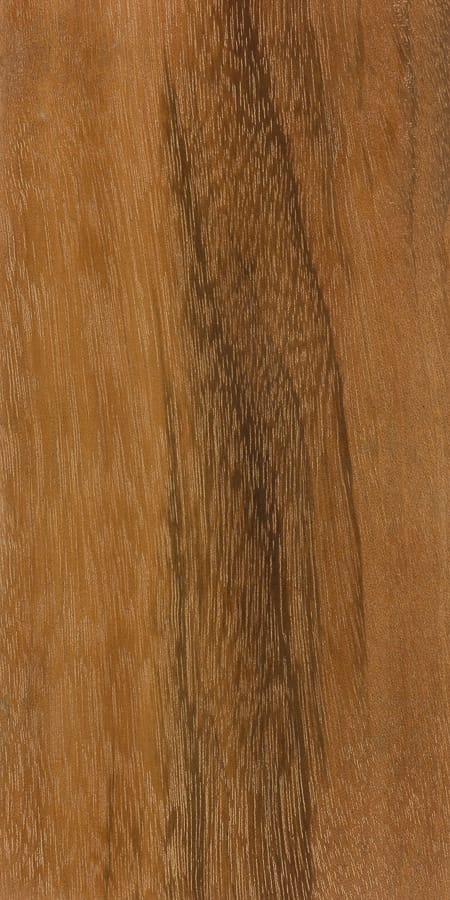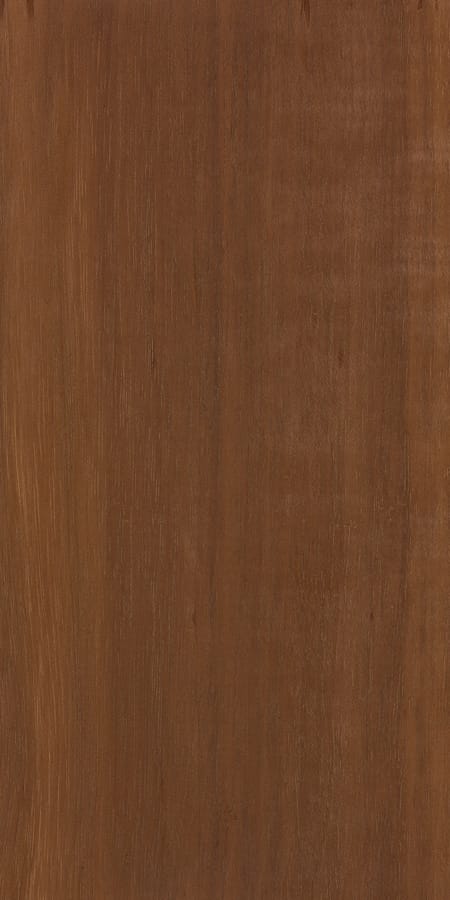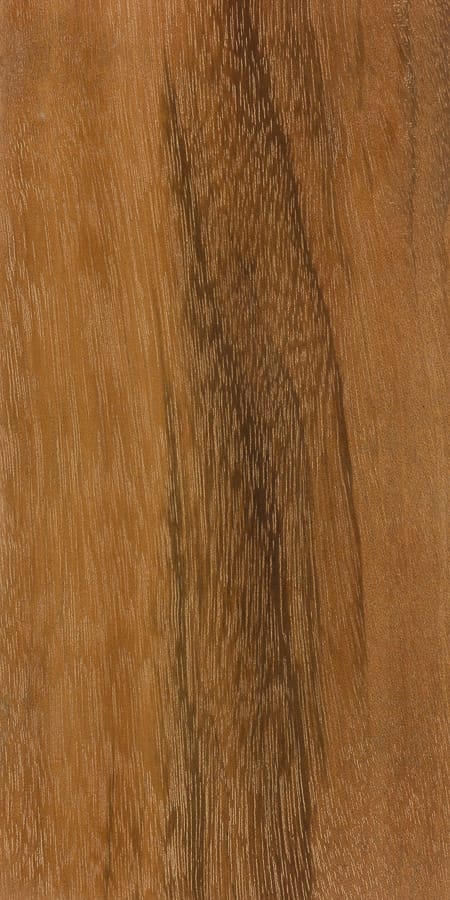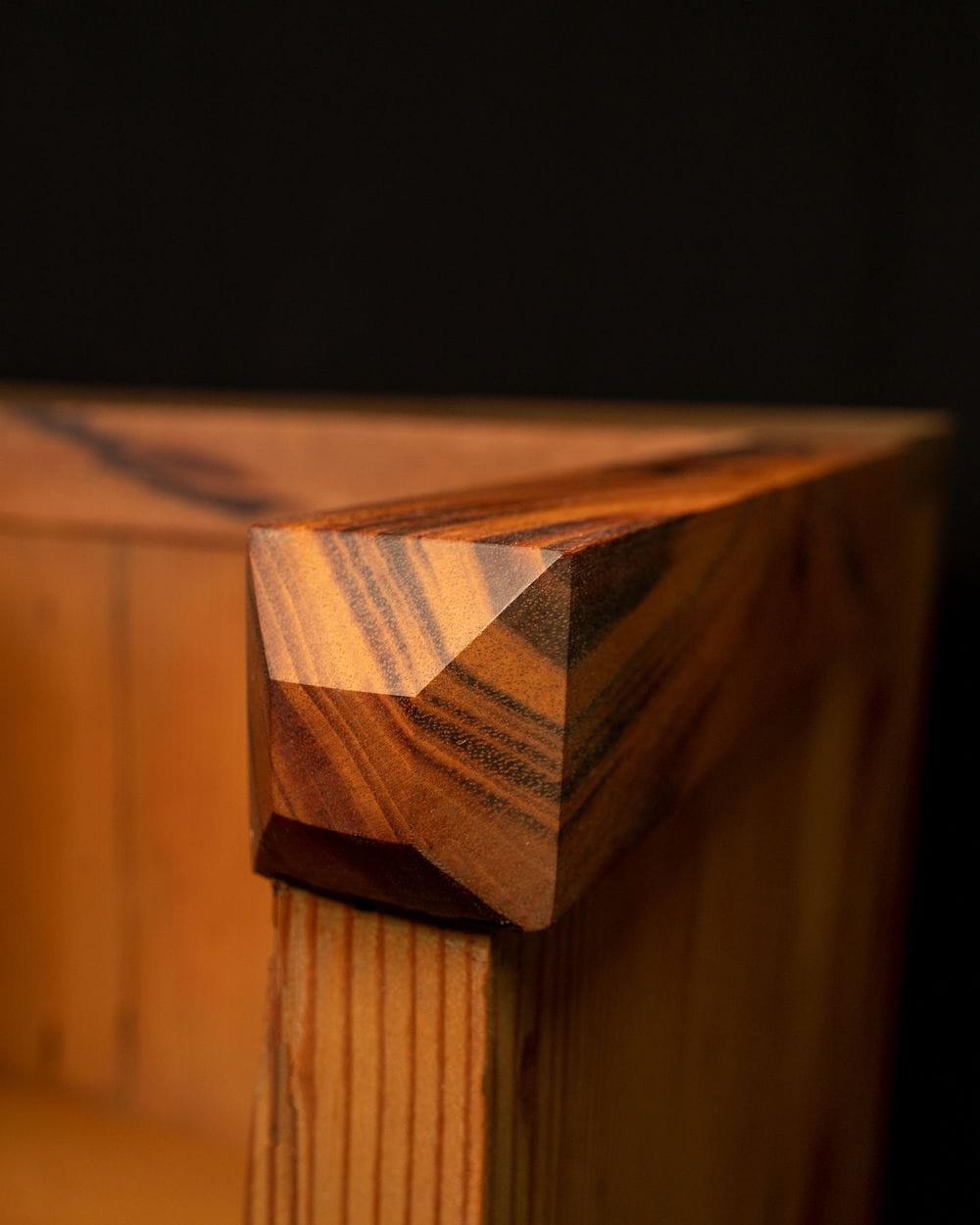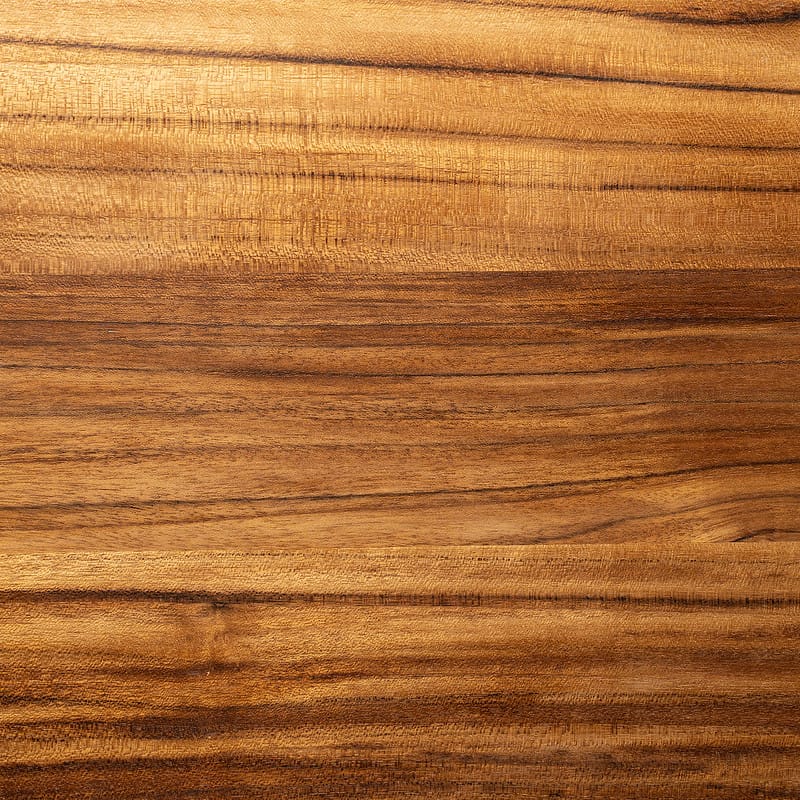Goncalo Alves, also known as Tigerwood, Jobillo, Muiracatiara, or Zebrawood in Central America, is a distinguished hardwood originating from Mexico down to Brazil. This wood is celebrated for its durability and eye-catching appearance, growing to impressive heights of 100-130 feet with trunk diameters of 3-5 feet. With an average dried weight of 57 lbs/ft³ and a Janka hardness rating of 2,170 lbf, Goncalo Alves combines strength with excellent weathering properties, making it highly durable against decay.
The heartwood typically showcases a medium reddish-brown hue, accented with irregularly spaced dark brown to black streaks, which naturally darken over time. It’s not uncommon to encounter pieces entirely uniform in color, without any streaks or stripes. The grain of Goncalo Alves varies, ranging from straight to wavy or interlocked, complemented by a fine, uniform texture and good natural luster, enhancing its visual appeal.
Despite its high density, Goncalo Alves is generally workable, though figured pieces with irregular grain can present challenges in planing and machining. Its resistance to moisture absorption may pose difficulties in gluing, yet it turns and finishes well, accommodating a wide variety of uses. Common applications include flooring, veneers, furniture, cabinetry, carving, turned objects, and other specialty items such as pool cues, archery bows, and knife handles.
Especially popular in the flooring industry under names like Tigerwood or Brazilian Tigerwood, Goncalo Alves is prized for its exceptional stiffness, strength, hardness, and durability. The wood's density and mechanical properties can significantly vary based on its specific growth location, making each piece uniquely valuable. In Central America, the wood is also known as Zebrawood, a testament to its versatility and widespread recognition for high-quality woodworking projects.


